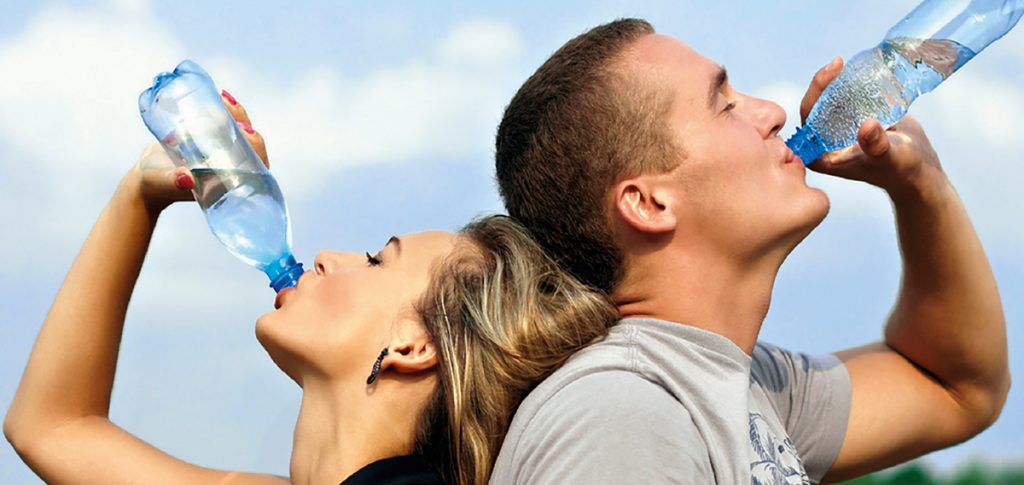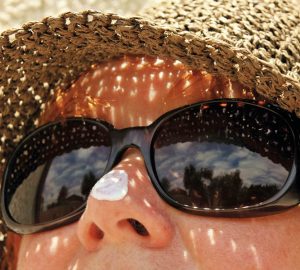Dehydration can be defined as “the excessive loss of water from the body.” Dehydration occurs when you lose more fluid than you take in and your body doesn’t have enough water and other fluids to carry out its normal functions; inadequate intake of water during hot weather or exercise may deplete your body’s water stores. If lost fluid remains unreplenished, you may suffer serious consequences.
Dehydration can occur at any age, but it is most dangerous for babies, small children, and older adults. Thirst is not always a good indicator for when to replace water., symptoms may be difficult to distinguish from those of the original illness, but in general, the following signs are suggestive of dehydration; dry mouth, weakness or lightheadedness (particularly if worsening on standing), darkening of the urine, or a decrease in urination. Severe dehydration can lead to changes in the body’s chemistry, kidney failure, and can even become life-threatening. Dehydration produces a decrease in ability to stay alert.
Dehydration in sick children is often a combination of both, refusing to eat or drink anything while also losing fluid from vomiting, diarrhea, or fever. The best treatment for minor dehydration is drinking water and stopping fluid loss.

Water is preferable to sport drinks and other commercially-sold rehydration fluids, as the balance of electrolytes they provide may not match the replacement requirements of the individual. Dehydration is best avoided by drinking plenty of water. Drinking water slightly beyond the needs of the body entails no risk, since the kidneys will efficiently remove any excess water through the urine with a large margin of safety.
It is better to have frequent, small amounts of fluid rather than trying to force large amounts of fluid at one time. A useful rule of thumb for avoiding dehydration in hot or humid environments or during strenuous activity involves monitoring the frequency and character of urination.
Dehydration Prevention and Treatment Tips
- Oral rehydration products are readily available in most drugstores, and many carry their own brands.
- Avoid certain foods and drinks. Avoid giving your child salty broths, milk, sodas, fruit juices and gelatins.
- Encourage the person to drink during an illness, and remember that a person’s fluid needs are greater when that person has fever, vomiting, or diarrhea.
- Drink plenty of fluids, especially when working or playing in the sun, but also try to spend as much time indoors as possible.
- Drink appropriate sports drinks to help maintain electrolyte balance.
- Wear lightweight, tightly woven, loose-fitting clothing in light colors.






